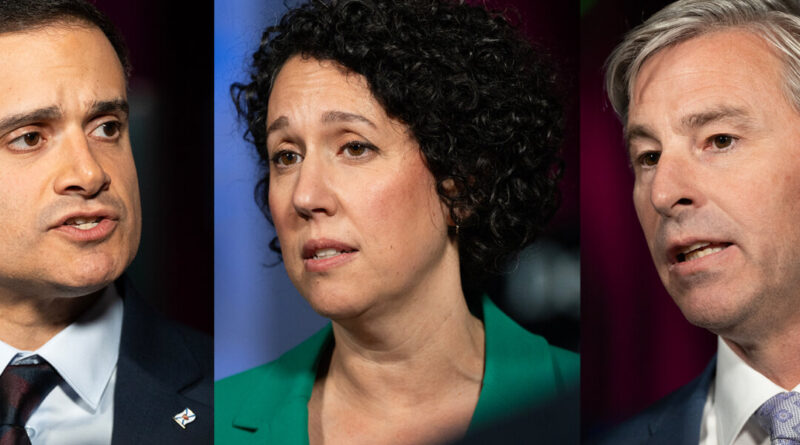Today, Nova Scotians are casting their ballots in a snap election.
Nova Scotia residents will cast their votes today concluding a month-long campaign that was prompted by a snap election call from Premier Tim Houston.
Houston’s Oct. 27 election call came well before the fixed election date of July 15, 2025. It also came at a time when his Progressive Conservative (PC) party was well ahead in the polls, which hasn’t changed over the past four weeks.
polling results
from Abacus Data.
Houston’s PCs hold 48 percent of the vote share followed by Claudia Chender’s NDP at 28 percent and Zach Churchill’s Liberal Party at 22 percent, according to the poll results posted Nov. 24.
Houston, who is seeking his second term as premier, is headed for a landslide win, according to Abacus Data. The incumbent is expected to not only secure a majority government, but possibly gain enough seats to form a supermajority. A supermajority in Nova Scotia occurs when a party holds at least two-thirds of the 55 seats in the House of Assembly.
“Despite NDP leader Claudia Chender having a lot of goodwill and the best net favourable rating of the party leaders, the incumbent PCs benefit from having a relatively popular incumbent leader,” Abacus Data CEO David Coletto said.
“Our final election survey also confirms that Tim Houston remains far more known than the other party leaders, even as the campaign enters its final days.”
Party Platforms
Houston has promised to cut the harmonized sales tax (HST) by one percentage point, to 14 per cent, by April 1 and increase minimum wage in 2025 to $16.50 per hour.
He has also pledged to remove the provincial portion of the HST on all food that isn’t already tax-free, impose a cap on electricity rate increases, reduce the small business tax rate to 1.5 percent, and make parking free at all Nova Scotia hospitals.
The Liberal’s Churchill has said his party would cut the harmonized sales tax by two points, to 13 percent, remove the provincial portion of the HST on all food that isn’t already tax-free, and provide $10 million in subsidies for independent grocers and food retailers.
He also said the Liberals would lower provincial income taxes by raising the basic personal exemption amount to $15,705, replace the federal carbon price with an Atlantic region cap-and-trade model for large industrial greenhouse gas emitters, and make public transit free across the province.
Chender promised the NDP would establish rent control, provide a tax credit for renters from low and middle-income households, and offer an affordable homes rebate that would help households with incomes of less than $70,000 save an average of $900 annually on rent or mortgage payments.
She also said her party would open 45 doctor clinics across the province and remove the province’s portion of the HST from all groceries, and cellphone and internet bills.
All three parties have a full roster of candidates, with 55 representatives running from each party.
At dissolution, the Nova Scotia legislature had 34 Progressive Conservative MLAs, 14 Liberal MLAs, 6 NDP MLAs, and one Independent MLA.
The Canadian Press contributed to this report.





